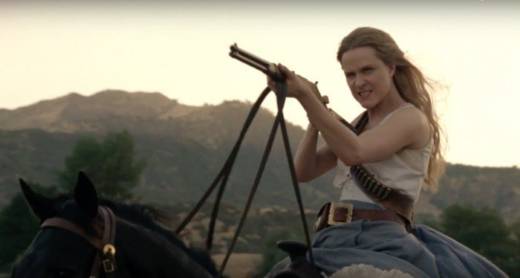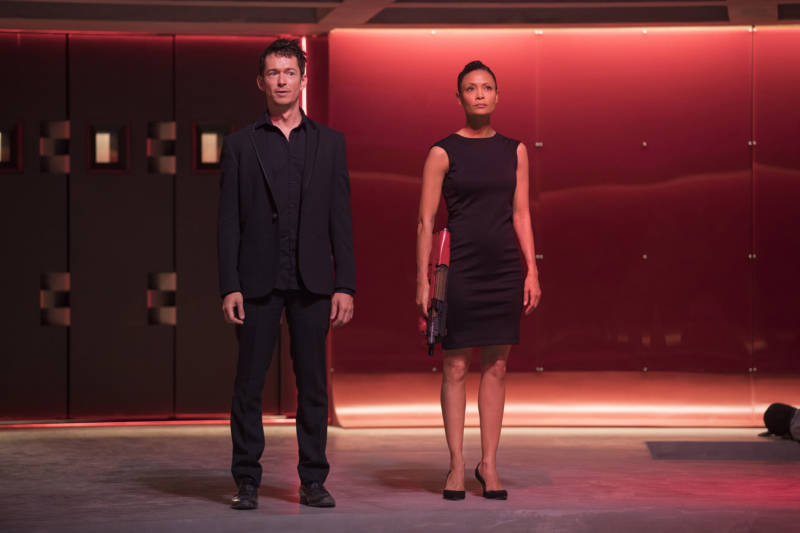Almost a year and a half ago, Westworld ended its first season with all hell breaking loose. We watched in slow motion as the tortured, abused robotic playthings of a cruel and entitled humanity slowly (satisfyingly) discovered their own sentience, thanks to some tricky programming by their inventor, Dr. Robert Ford. In that final episode, Dr. Ford (played by Anthony Hopkins) died at the hands of Dolores (Evan Rachel Wood), in front of a horrified audience of investors and Westworld visitors. The implication was that this would be an almighty bloodbath, as the artificially intelligent machines of the most twisted theme park on Earth rose up to have their revenge. And Season 2 confirms immediately that, yes, a river of blood has been shed -- and it may yet get to Mississippi-sized proportions.
After watching Westworld's lifelike machines get slaughtered, raped, and annihilated, just to have their memories wiped to suffer another painful demise all over again, there was something enormously gratifying about seeing the robots winning -- even if it meant watching the humans in the room dying for it. It's those same moral confusions that are writ large for the viewer, in the first episode of Season 2.
During Season 1, Westworld established itself as one of the most creative and mentally challenging conundrums on television, not just because of the non-linear story structure, or getting to the center of Dr. Ford's "maze." Mostly, it had to do with questions about what it truly means to be human, and whether being so is always a good thing. It had to do with humanity's need to play God, to seek all-corrupting power, and the lengths that people will go to to feel superior to others. The show asked week after week if humans were monstrous -- and the answer was usually "yes." It asked us to ponder: if the robots -- or "hosts" as they're known in the show -- view humans as "the Gods," what does that say about our own religions?
Based on the second season premiere, it's a fair bet to say that those questions are only going to expand further, bringing ever-blurrier answers to complex morality puzzles. After Dr. Ford's death and the start of what Dolores refers to as "the reckoning," Westworld is even less black and white than it was before. This is, even more so now, a world in which there are no heroes or villains; everyone is a little of both. As the robots have become more human, they have ceased to be victims, but they have also ceased to be good. And as the discovery of sweet, adoring William's transformation into the sadistic Man in Black sinks in, it's even possible to feel sorry for him too.



